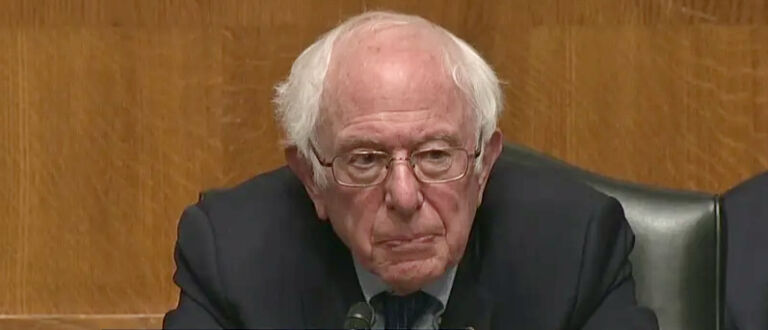Today will be a busy day for the Senate Rules Committee. As of this writing, the committee is set to hear 18 bills when they get together later.
Among the bills the Senate Rules Committee plans to hear today are four really good pieces of health care legislation that are likely making their final committee stop before the Senate floor. The bills of interest include a new health insurance product, certificate of need reform, provider regulation reform, and surprise billing reform.
EPOs
Starting with the new health insurance product, the committee will hear the bipartisan SB 228, Allow Employers to Offer EPO Benefits Plans. With a companion bill set to move through the House, SB 228 arrives at the Rules Committee after clearing the Insurance and Health Committees. I described EPOs and their benefits for employers and employees in a previous blog:
SB 228/HB 373 would allow for the sale of exclusive provider organization (EPO) plans to North Carolina’s small businesses. Under current law, only large employers have the opportunity to buy these plans. EPO plans are essentially a managed care plan where the insurer only offers in-network coverage from a narrow network of providers. Furthermore, the insurer will not pay for any out-of-network care, except for emergency services. Similar to HMOs, EPO plans sometimes require the insured to pick a primary care provider (PCP). But unlike HMOs, EPOs typically do not require that you get referrals from your PCP to see a specialist.
Allowing small businesses to purchase EPO plans will create another affordable insurance option for employers in North Carolina. In exchange for a narrower network of providers, insurers can offer reduced premium rates to employers because the exclusivity of the plan guarantees a certain patient volume for the provider groups that agree to take these plans. As small employers look for more ways to provide insurance to their employees, EPOs could offer another option.
Certificate of Need (CON) Reform
The Senate is also considering SB462, CON Threshold Amendments and Certificate Expirations. Readers of the Locker Room are familiar with the John Locke Foundation’s long-term goal to repeal CON laws in North Carolina. While this bill is not a full repeal of CON, it does provide some welcome modifications to the law and how certificates can be used.
The bill would raise the thresholds that trigger a CON review for health facilities and other capital expenses. The bill then pegs this threshold to inflation to increase with the rising cost of building new health care facilities or acquiring new equipment.
Next, the bill would set a “shot clock” on how long recipients of a CON have to start a project once the certificate is awarded. The reason for this reform is that sometimes the recipient of a certificate only obtains it to keep competitors out of the market, never breaking ground on their project. Setting a time limit ensures that if someone wins a CON, they must start their project, or the certificate expires.
This is a needed reform and a step in the right direction to returning the freedom to determine health care supply in the state back to the private market.
Physician Assistant Oversight Reform
The next health care bill to be considered today is S345, PA – Team-Based Practice. This bill will exempt PAs from some regulatory oversight if certain conditions are met. I briefly explained what this bill would do in a previous blog:
This bill updates and loosens some of the regulations concerning physician assistants. Similar to some advanced practice nurses, PAs are required by current law to have a supervisory arrangement with a physician. While well-intended, these supervisory requirements can hinder well-trained health professionals from offering their full range of medical services.
SB345 amends the requirement for supervisory agreements between physician assistants and physicians. Under the changes proposed in the bill, a PA would not be required to enter into a supervisory agreement if the PA practices in a team-based setting and has more than 4,000 hours of practice experience and more than 1,000 hours of practice experience with a physician in a particular medical specialty. The bill furthermore sets standards for how PAs who operate without a supervisory agreement can practice.
Surprise Billing Reform
The final health care bill to be heard in Senate Rules today is SB 505, Medical Billing Transparency. This bill takes aim at one of the most common scenarios that cause surprise bills: a patient goes to an in-network hospital for a procedure but finds out after the fact that one of the providers who treated the patient was not in-network.
S505 would attempt to limit this unfortunate scenario by requiring hospitals within 72 hours of the appointment to notify patients that an out-of-network provider will treat them and the approximate cost. For those instances where the procedure cannot be scheduled 72 hours out, the hospitals must tell the patients this information as soon as possible. Furthermore, the bill would require insurers to provide a list of out-of-network providers working at in-network facilities.
There are several different ways states have tried to solve the surprise billing issue. Some are much better than others. SB 505 is a reasonable approach to give patients more information about who is treating them when possible.
Towards a Better Health Care Market
Where the state still has control of the health care market, there are plenty of reforms that can be implemented to create a more workable process when one accesses the health care market. Each of the four bills described in this blog do just that. EPOs will give employers another choice to cover their employees. CON reform will provide more opportunities to health care entrepreneurs to direct precious resources to where they believe it is needed the most. PA oversight reform will empower highly trained professionals to practice with more autonomy, stretching the health care infrastructure we have in the state. Surprise billing reform will help patients understand what they will be paying before the procedure begins. I commend the Senate sponsors for their work on these bills and believe each of them will move us towards a better health care market.


